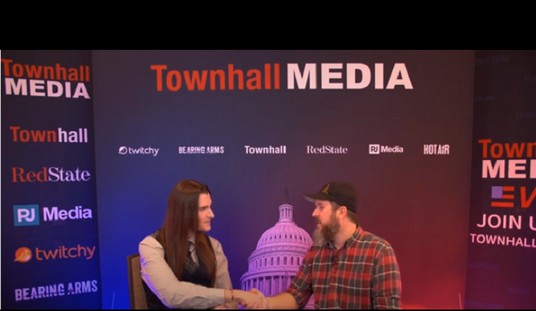WALL, South Dakota -- Everything about Wall Drug, arguably the most iconic and long-lasting drugstore in America, exemplifies a doggedness. It took persistence to not only survive, but also thrive against insurmountable odds in a place few thought a small business had any business starting an enterprise in the first place.
In 1931, when Ted Hustead and his wife Dorothy were looking for a place to open a drugstore, he picked the thinly populated town of Wall because the local doctor told them he'd give them all his prescriptions, so he told the local paper years later.
Despite all their hard work, though, most of their potential customers passed their little prairie town along the highway, rarely noticing the store.
The Husteads' dire future all changed one hot summer night when Dorothy Hustead could not sleep. Irritated that the parade of cars along U.S. Route 16 was keeping her awake, she wondered: How could they make those people at least stop at their store and maybe buy a thing or two?
Out of that mild irritation came a plan: Plant signs along the highway offering free ice-cold water to weary travelers. And not just any signs, but clever ones like the humorous Burma-Shave signs that were famously posted all along small highways in the 1920s.
Her idea was both simple and genius. More importantly, it worked.
Within a year, they went from no employees to eight; the roadside signs went from a handful to hundreds of billboards. And today, Wall Drug is a 76,000-square-foot, multimillion-dollar slice of Americana where you can still get your prescription filled, but you can also get handcrafted moccasins, divine homemade doughnuts, out-of-print books on the American West, cowboy boots, clothing, ice cream, Western art, homemade pies and bumper stickers. If they don't have it, it's probably not made.
Recommended
Those original signs, once handmade, have become thousands of nostalgic, colorful billboards that dot the prairie beginning before you depart Iowa or Minnesota for South Dakota. Those signs are so ingrained in our culture that soldiers during World War II and the wars in Korea, Vietnam, Iraq and Afghanistan planted the "Free Ice Water at Wall Drug" signs everywhere.
For many of those soldiers, those signs symbolized everything they loved about home and America.
Wall Drug's success has not just been limited to itself. As it grew and prospered, so did the town; there are now more than 400 motel rooms in Wall, several bed-and-breakfasts and some motor-lodge cabins and campsites.
People who come here are more often repeat visitors than first-timers, and if they are a first-timer, they vow they will be a repeat.
Charlie McLaughlin was sitting on a bench outside the drugstore, waiting for the 10 family members and friends he brought here from New England to make their way out of the store.
McLaughlin explained that he spends little time in the store himself: "I'd rather enjoy the people-watching."
Charlie explained that from his vantage point, he feels he can see all of America walk in front of him.
"People from every state, walk of life, size, shape, and color, and it is a great thing to watch," the Plainfield, Massachusetts, resident said.
"Look around you," he said, pointing to the flurry of thousands of people talking to each other, holding hands, eating ice cream. "They are all happy. I like that."
His perspective of the country is far different from what you see on the news channels or read about on social media; here, there was a definite sense that everyone had a connection to each other, that they were experiencing something bigger than themselves. It is a far cry from the constant drumbeat coming from our cultural curators who push storylines or sentiments that divide us.
McLaughlin's wife, Mary, said she really enjoyed the different people they met along the 1,800-mile trip.
The McLaughlins and their family and friends were heading to Sturgis for the annual motorcycle rally, then they were off to enjoy the sights and sounds of the rest of the country.
"After the rally, we're going to go on to Montana, Canadian border, Highway to the Sun, Glacier State Park, and then across to Washington state," Charlie explained as his eyes lit up.
At the time, they were just enjoying watching the people and their family's and friends' reactions to their first time at Wall Drug.
Wall was a town of about 300 when the Husteads arrived in a Model A truck. What they did far exceeds the riches of success; it is purposeful.
The Hustead family has done what Alexis de Tocqueville admired about the essence of Americanism: the drive to form associations with each other that draw together different types of professional, social, civil and political groups over a shared aspiration.
In this little prairie town exists this community where people from all different socioeconomic and geographical places feel that connective tissue with each other and with a druggist family that punched above its weight class.
It is something they find lacking every time they consume the news, go to buy a product or even watch any major sporting event. Everything about Wall Drug -- from its early trials to its innovative path to prosperity -- reflects that frontier spirit America was built on; it is an enduring quality that has embodied us and still embodies us to this day.
Salena Zito is a national political reporter and columnist for the Washington Examiner as well as a weekly columnist for the New York Post. She reaches the Everyman and Everywoman through shoe-leather journalism, traveling from Main Street to the beltway and all places in between.
























Join the conversation as a VIP Member